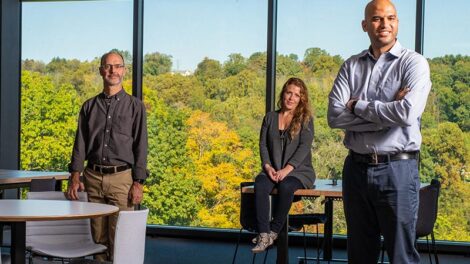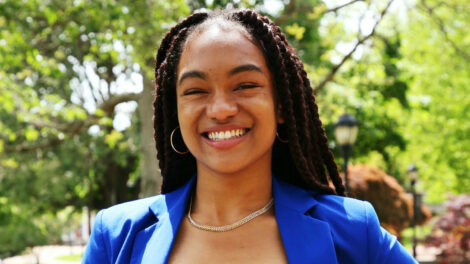Big Idea Pitch Competition is one of the Dyer Center's student-focused activities aimed at promoting entrepreneurship, innovation, and creativity
By Stephen Wilson
Tired of hearing the host’s music at the party? Worried your recycled prescription bottles will lead to identity theft? Want to get organized or add haptic feedback to virtual learning?
Then look no further than the ideas showcased at the annual Dyer Center Big Idea Pitch Competition, one of the center’s many student-focused activities aimed at promoting entrepreneurship, innovation, and creativity.
In the Big Idea Pitch Competition student teams present ideas and vie for cash prizes. But first they face the advice, questions, and comments from a panel of alumni judges.
This year’s judges included Terese Brown ’07, fashion designer and founder of fashion label Terese Sydonna; Nina Flood ’93, president of backpack line Eastpak; and Justin Kamine ’11, entrepreneur, co-founder of Kamine Development Corp., and Forbes 30 under 30 selection.
All of the students were great presenters, better than many people who have already been out of college and in the business world for many years. I am a bit jealous that the Dyer Center was not there when I was a student.
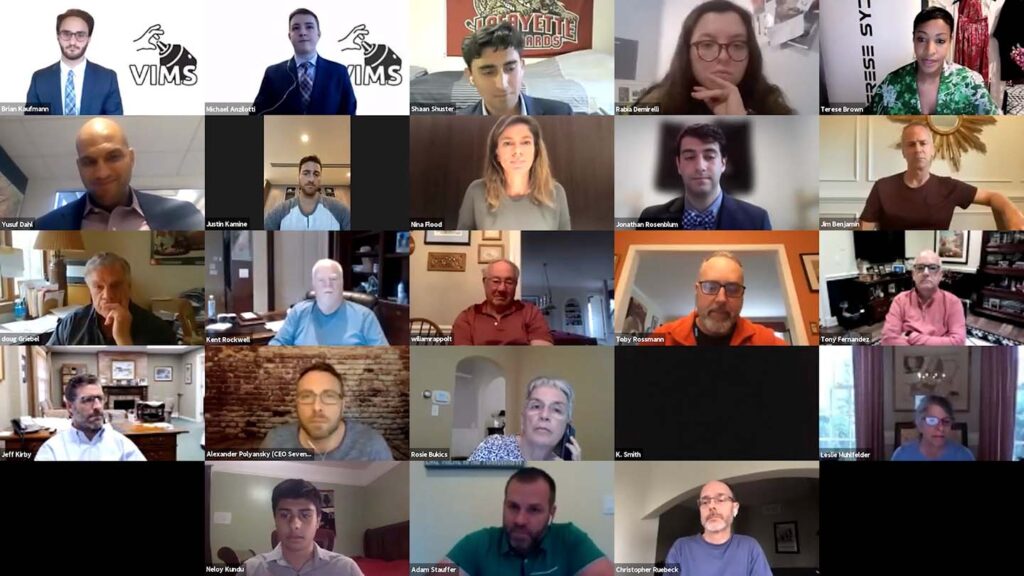
Student teams followed a progression that explained their ideas, scaling options, market size, competitive landscape, ways to monetize, and value proposition. Each team had 10 minutes and then faced the judges for five.
TuneDune
TuneDune, which is available on the app store, makes party music easy. It links guests’ music streaming accounts, examines playlists, and curates a song queue to keep the music flowing. The idea, presented by Neloy Kundu ’23, Shaan Shuster ’23, and Lekso Borashvili ’23, supports both Spotify and Apple Music.
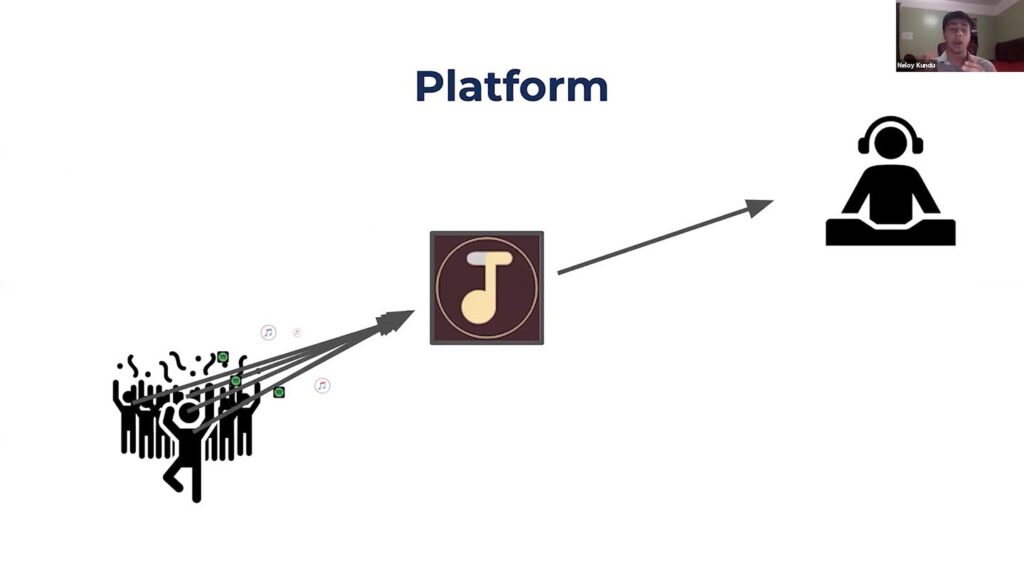
SCRIP-SHARx
SCRIP-SHARx is a handy, easy-to-use device that obliterates the label, and all of the critical information on it, on prescription bottles. Jonathan Rosenblum ’22 has patented and manufactured the device and sees how partnerships with health care providers and insurers could lead increased privacy for 66% of American adults who use prescription medicine.
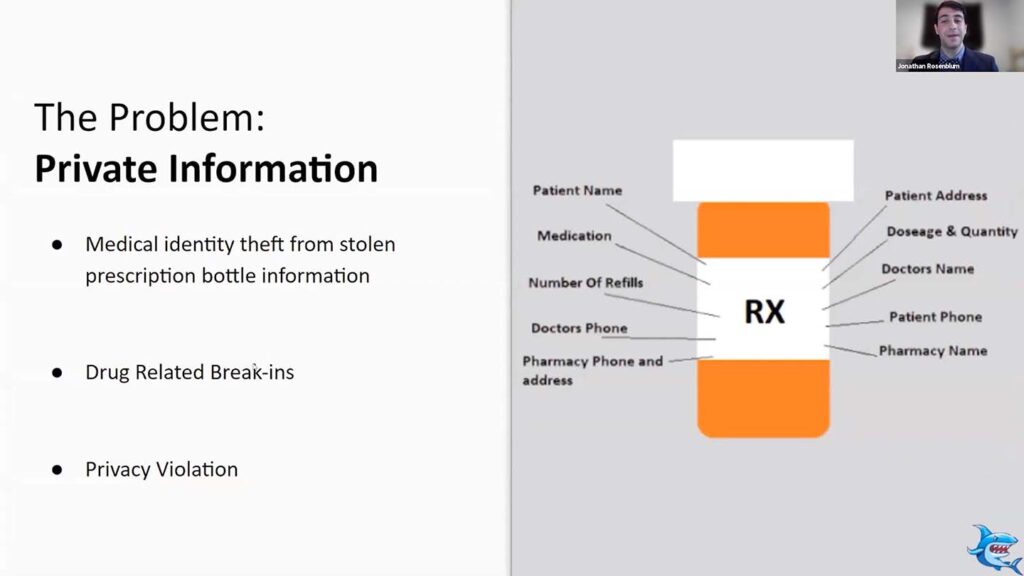
Young & Thriving
Young & Thriving, a suite of digital and physical products, promotes a holistic approach to college life by helping students stay organized and disciplined as they navigate academic and social demands. Shantae Shand ’22 and Chelsea Wright developed packages and retail products to help entire institutions and each individual.
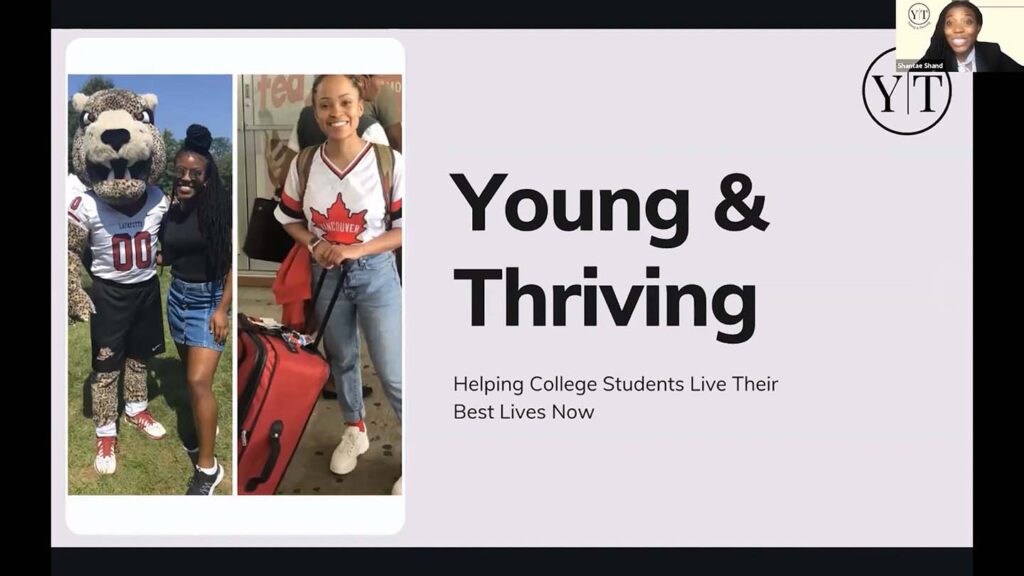
VIMS
VIMS, a virtual machine simulator, takes virtual learning for students developing manufacturing skills to the next level by adding haptic feedback. Michael Anzilotti ’21 and Brian Kaufmann ’21 know all too well what it is like to learn how to operate a lathe when miles away from the equipment. Their solution would mimic the physical requirements of a machine when a student lacks physical access.
 The judges balanced praise with pointed feedback ,and after deliberating awarded TuneDune with a $2,000 prize. VIMS and Young & Thriving were each awarded $500. The latter team also took home the people’s choice award, which added another $250 to their earnings.
The judges balanced praise with pointed feedback ,and after deliberating awarded TuneDune with a $2,000 prize. VIMS and Young & Thriving were each awarded $500. The latter team also took home the people’s choice award, which added another $250 to their earnings.
Dyer Center director Yusuf Dahl acknowledged each team as having gone further than other would-be entrepreneurs because they overcame a common obstacle: not getting started.
“You took action,” he said, “which makes your accomplishments as students even more exhilarating. The advice and support offered today can only help you, your teams, and your ideas and products evolve.”
“All of the students were great presenters, better than many people who have already been out of college and in the business world for many years. Beyond the students’ intelligence, presentation skills, and entrepreneurial spirit, I was also impressed with how teams exhibited a collaborative, respectful approach that will make them great team players and leaders in the future,” says Flood. “I am a bit jealous that the Dyer Center was not there when I was a student.”




 The judges balanced praise with pointed feedback ,and after deliberating awarded TuneDune with a $2,000 prize. VIMS and Young & Thriving were each awarded $500. The latter team also took home the people’s choice award, which added another $250 to their earnings.
The judges balanced praise with pointed feedback ,and after deliberating awarded TuneDune with a $2,000 prize. VIMS and Young & Thriving were each awarded $500. The latter team also took home the people’s choice award, which added another $250 to their earnings.